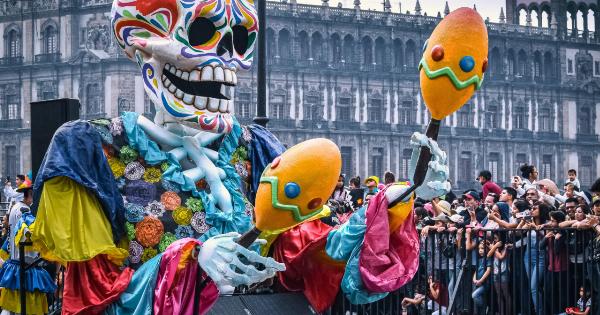Dying young is a tragedy that can affect anyone. It not only cuts short the life of the deceased but also leaves behind grief and pain that can last a lifetime.
While death can come at any age, dying young comes with its own set of dangers that can impact both the individual and those around them. In this article, we explore the dangers of dying young and the ways in which it can affect individuals and their families.
1. Unfulfilled Potential
One of the biggest dangers of dying young is the unfulfilled potential that comes along with it. When someone dies young, they may miss out on the opportunities to achieve their dreams and fulfill their aspirations.
For instance, a young artist who dies before reaching their prime can no longer create masterful works of art that could have influenced the world. The unfulfilled potential can lead to a sense of lost legacy and also a feeling of regret among those left behind.
2. Psychological Impact on Loved Ones
Another danger of dying young is the psychological impact on loved ones. The death of a child, for instance, can cause severe trauma that could last a lifetime.
It could lead to feelings of guilt among the surviving family members and also lead to depression, anxiety, and stress. This emotional trauma can also impact the physical health of the grieving family members.
3. Financial Hardship
Dying young can also lead to financial hardship for the family members left behind. If the deceased was the primary breadwinner, their death can leave the family without a source of income.
This could lead to financial stress and could make it difficult for the family to meet their basic needs. If the deceased had life insurance, it could provide some financial relief. However, if they didn’t have insurance or it wasn’t large enough, it could lead to financial struggles for years to come.
4. Impact on Society
When someone dies young, it can impact society as a whole. For instance, if a young doctor or scientist dies before they had a chance to share their knowledge and skills with the world, it could impact the progress of science and medicine.
Similarly, if a young leader dies before they could make a significant impact, it could impact the political or social landscape of the community.
5. Loss of Experience and Knowledge
When someone dies young, they take with them years of experience and knowledge. This loss can impact many people, especially if the person was an expert in their field.
For instance, if a young business owner dies, they take with them the knowledge and experience they gained in building their company, which could have helped others who were just starting. Similarly, a young teacher who dies before they could influence many students could lead to a loss of knowledge and experience.
6. Physical Health Risks
Some young people are at a greater risk of dying than others. For instance, young people who engage in risky behaviors such as drug abuse, alcohol abuse, or unsafe sex are more likely to die from related complications.
These behaviors can lead to physical health problems that could be fatal. Additionally, young people who engage in extreme sports or stunt-related activities are at risk of dying from accidents. While these activities can be thrilling, they also come with great risk.
7. Impact on the Individual’s Life Plans
When someone dies young, it can impact their life plans significantly. For instance, if a young person dies before they get married or have children, they miss out on experiencing the joys of family life.
Similarly, if a young person dies before they could graduate from college or start their career, they miss out on the opportunities and experiences that could have shaped their future. This impact is not just limited to the individual but also extends to those around them.
8. Regret
When someone dies young, it can lead to a sense of regret among those left behind.
For instance, if the death was related to an illness that could have been prevented or treated, family members may feel guilty about not recognizing the symptoms earlier or seeking medical help sooner. Similarly, if the death was related to risky behavior, family members may feel regret about not intervening or seeking help sooner.
9. Impact on the Young Person’s Identity
When a young person dies, it can impact their identity significantly. They may be remembered for the way they died rather than who they were as a person.
If the death was related to suicide or drug overdose, for example, it could impact how the individual is remembered by others. This can be a difficult way to be remembered, especially for someone who may have been struggling with mental health or addiction issues.
10. Impact on Mental Health of Survivors
Finally, the death of a young person can impact the mental health of the survivors. The grieving process can be difficult, and it can be even harder for family members who have lost someone so young.
It’s important for survivors to seek help and support during this difficult time to help manage their mental health and cope with their grief.
Conclusion
Dying young is a tragedy that can impact many people in different ways. It can lead to unfulfilled potential, financial hardship, and psychological trauma, among other dangers.
It’s important for individuals to make the most of their time on earth and for others to help them achieve their goals. Additionally, family members and loved ones should seek support and help during the grieving process to help manage the impacts of losing someone so young.




























